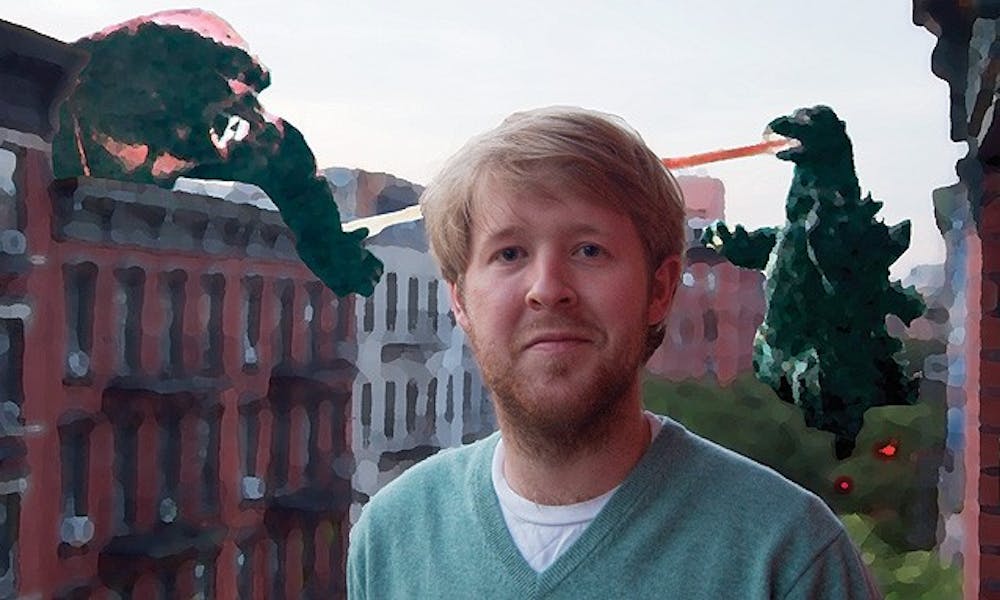"You want to be in the film industry, right?”
The question hung in the early summer air and I almost didn’t hear it. Fresh off graduation eight days earlier, I was already late in leaving for Princeton to watch the Duke men’s lacrosse team play UNC in the 2009 NCAA playoffs. But this question, delivered by a close friend of my parents’ amid my polite small-but-hey-I-really-need-to-get-out-the-door-talk, stopped me in my tracks.
And I’m damned glad it did.
Like my fellow classmates and future national champions, I was not cognizant of my impending larger fate. The family friend—not in the film industry himself—offered to introduce me to his former college roommate who was making a new film. Having seen his friend’s previous work, I immediately jumped at the chance, emailed a resume and was told to maybe expect an answer in a few weeks. Three days later, I woke up to an email from writer-director Whit Stillman with a job offer and the script for his first film in 12 years, Damsels in Distress.
Initial pre-production of a film mirrors the frightening abyss-like expanse of post-graduation life: You have nothing and it’s up to you to assemble the tools you need to construct your world. Day-to-day work on Damsels began on a sizzling morning in late July when four of us opened the production office in SoHo. There, our sweat glistening, we pooled together our efforts and the production began to flow. Like a river headed toward a waterfall, the project picked up speed fast, amassing more space, people and resources in its current as it thundered through the rest of the summer and into September, and before I knew it, we had begun shooting.
The autumnal start of Damsels, a college comedy of manners centering on a group of four girls and their male suitors, helped to alleviate my collegiate post-partum depression. Driving to “Seven Oaks University” each morning, usually around 5 a.m. with a carful of the main actors, made me feel as if I were starting a new semester. Similarly softening the transition were the eerie resemblance of our set’s main location to East Campus and the fact that that I was a fictional Seven Oaks student—I have a brief cameo in the film as the DU fraternity bartender. In hindsight, each film project does function a bit like a class: the script being our shared text, the call sheet our daily lesson plan and the director our professor. And as it turns out, Whit even supplied Adam Brody with a reading list for his character that included Emma; post-30 minute back and forth with Seth Cohen later, I’ll never knock that English major-required Jane Austen class I begrudgingly took senior Spring.
If Damsels kept me in a young, collegiate comfort zone, I grew up quite fast with Shame, the gritty, sexual drama and second feature that I worked on. Despite the winter’s bitter cold and the film’s intense tone, pervasive electricity pulsed through the cast and crew on artist-turned-director Steve McQueen’s follow up to 2008’s Hunger. Because of stars Michael Fassbender and Carey Mulligan, who at the time verged on superstardom, there existed a gleeful giddiness that we were getting away with a Very Naughty Story Before It Was Too Late. To add to that excitement, our producers were travelling each weekend to various award shows for their previous film The King’s Speech. And just like that, we awoke one Monday morning working for Best Picture winners.
My time on Shame solidified a theory that had been brewing since Damsels: Nothing is outside the realm of possibility in the life of a film production assistant. Between the two projects, I found myself making announcements on subway cars, getting a tutorial in the Bronx on how to operate a fake heart monitor, hitting morning traffic into Manhattan after a 14-hour day of work, sprinting through freezing hail down the Hudson Pier and renting fake guns in an underground weapons specialist boutique. Those duties are the standouts—dozens of menial, repetitious and often grueling tasks make up the world of filmmaking. But, nestled in the daily grind are moments tinged with glamour: breaking the news to Greta Gerwig about her Indie Spirit nomination, celebrating wrap to the wee hours of the morning with Fassbender and McQueen, walking in on Mulligan rehearsing by herself during break with the glittering midnight Manhattan skyline as her backdrop.
I have spent the year underslept and over-caffeinated, oft-frustrated but more exhilarated, anxious of my future and ever-grateful for each opportunity. And I have remembered to seize those opportunities, to laugh at the absurdity of it all, to honor the people who brought me into the fold; to run faster, to stretch my arms farther, until one fine morning…
Charlie McSpadden is a former Towerview contributor and film editor emeritus of Recess, the arts and entertainment section of The Chronicle. He is currently working on Baz Luhrmann’s adaptation of The Great Gatsby. Find him on Twitter @cdmcspadden.
Get The Chronicle straight to your inbox
Signup for our weekly newsletter. Cancel at any time.

